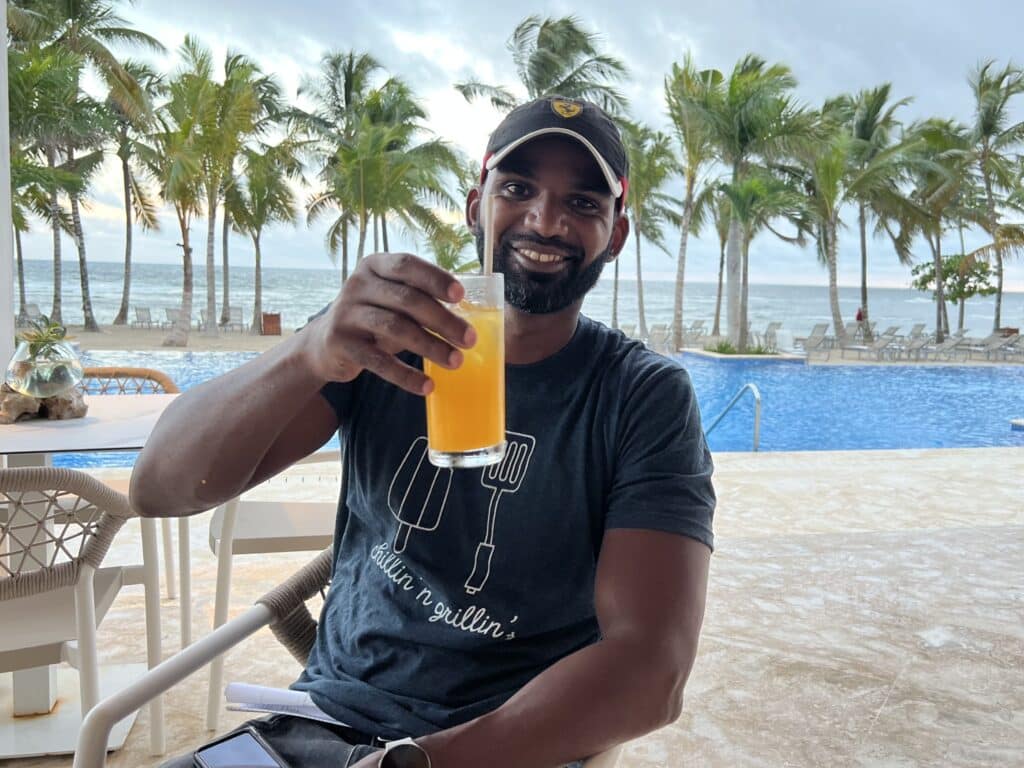
Like many young men in the Dominican Republic, Francisco Castillo grew up wanting to be a professional baseball player. It didn’t work out, but he eventually found a way into the game. It’s a case of a dream dashed, but later delivered in a different form.
Castillo, known as “Pachy” to almost anyone acquainted with him, is a key player in JapanBall’s tours of the Dominican Republic. Long before, though, his goal was to play in Major League Baseball. Following the well-worn path of Dominican hopefuls, he began at a very young age in his home town of Pantoja, near Santo Domingo, eventually was noticed, and began working with an independent trainer.
“My first baseball experience was at a little field close to where I lived,” said Castillo, who is unclear how the nickname Pachy originated. “There was no organized league. You just started playing and, if you liked the game, went to something more organized. When I turned 13, I was already pretty tall (6-2) and showing some abilities – I could hit the ball pretty hard – so I started getting serious about it.”

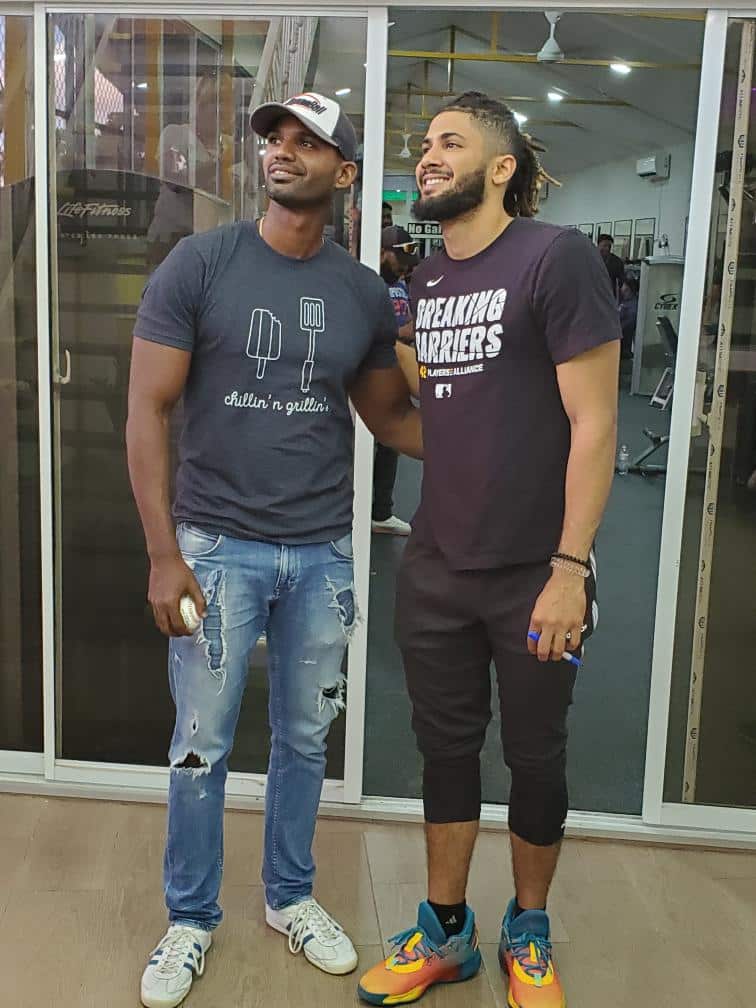
Henry Gonzalez has known Castillo from a young age and said, “We’re from the same town, and our parents were very close. Pachy started growing fast with a very lean body, kind of like a taller version of [former MLB outfielder] Eric Davis. He was very athletic and could hit the ball hard. He was one of the best prospects we’d had from our neighborhood.
“We had the same trainer, so I had the opportunity to see him play a lot of times,” Gonzalez continued. “He had very good power and was great defensively, with an above-average arm and the ability to get to balls easily, even though he wasn’t a super-fast runner. He really worked hard. It wasn’t about money for him; he just had a passion for baseball.”
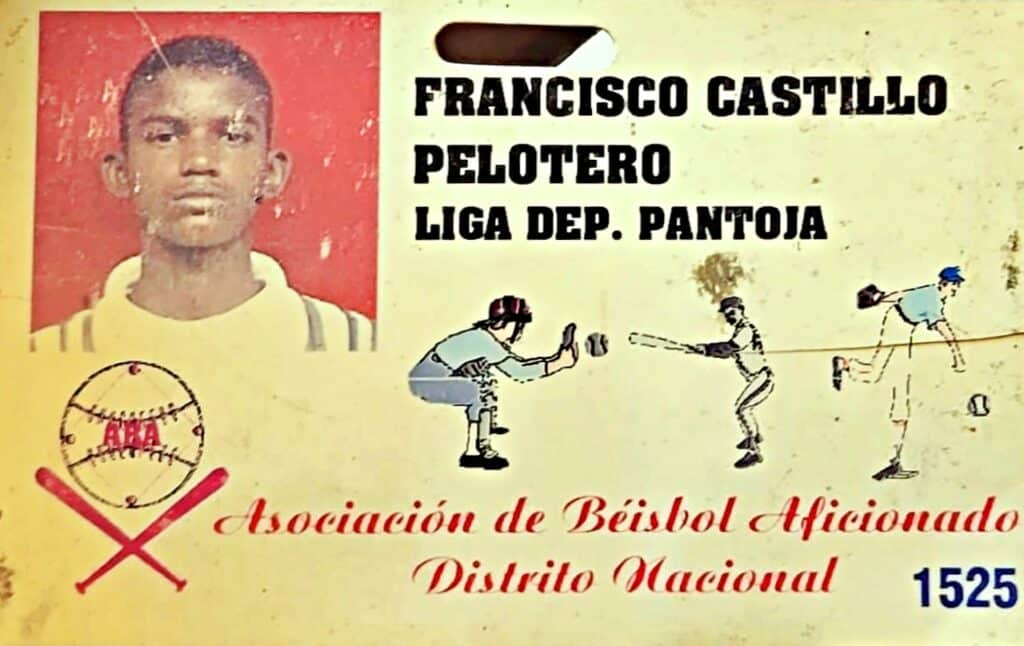
Castillo, a corner outfielder, had tryouts with most of the MLB organizations that had facilities in the D.R., and received contract offers from the Philadelphia Phillies, Colorado Rockies, and Cleveland Guardians (nee, Indians). However, the agency representing him rejected the offers, saying the signing bonuses weren’t high enough, and then the offers stopped coming. With hindsight, he can see the reasoning. At the time, though, he couldn’t.
“After later working for an agency, I can now see that I had showed enough ability that the offers should have been greater,” Castillo said, “but it was very frustrating then because all my teammates got signed.”
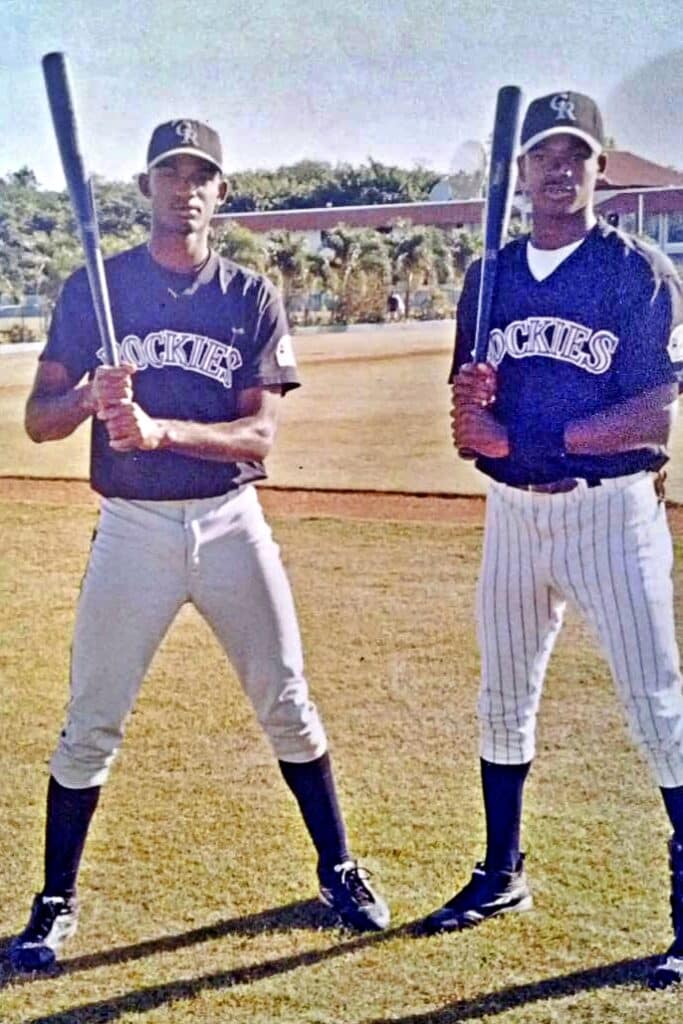
Afterward, he went to an instructional league for three months and played well, but he never got another offer. At that time, he was 17 and nearing 18, which is considered old for a prospect in the D.R., where many are signed at 16. He kept practicing but left the agency. By the age of 21, he was done playing.
“It was pretty hard at the time not to get the opportunity. Who knows what might have happened with baseball.”
Instead, a lot of other things happened.
His parents were business people who ran a pawn shop and had a couple of apartments that they rented. They needed help, so Pachy took on responsibilities there. He attended university, studying computer engineering, but left after two years because of family issues and responsibilities.
In 2013, he went to work for Major League Baseball as a registration analyst, confirming all the information that prospects provided. It was in that role that he first met JapanBall president Shane Barclay, who was then with MLB in New York.
“My job was to register all the players who wanted to get pro contracts,” Castillo said. “They had to sign documents with MLB, and we had to make sure their birth certificates were correct and that all our information was accurate.”
Barclay said, “I first met him on a working trip to the D.R. He essentially had the same job that I’d had when I was there a few years before. I sometimes consulted with him and his boss, who were new to the registration program.”
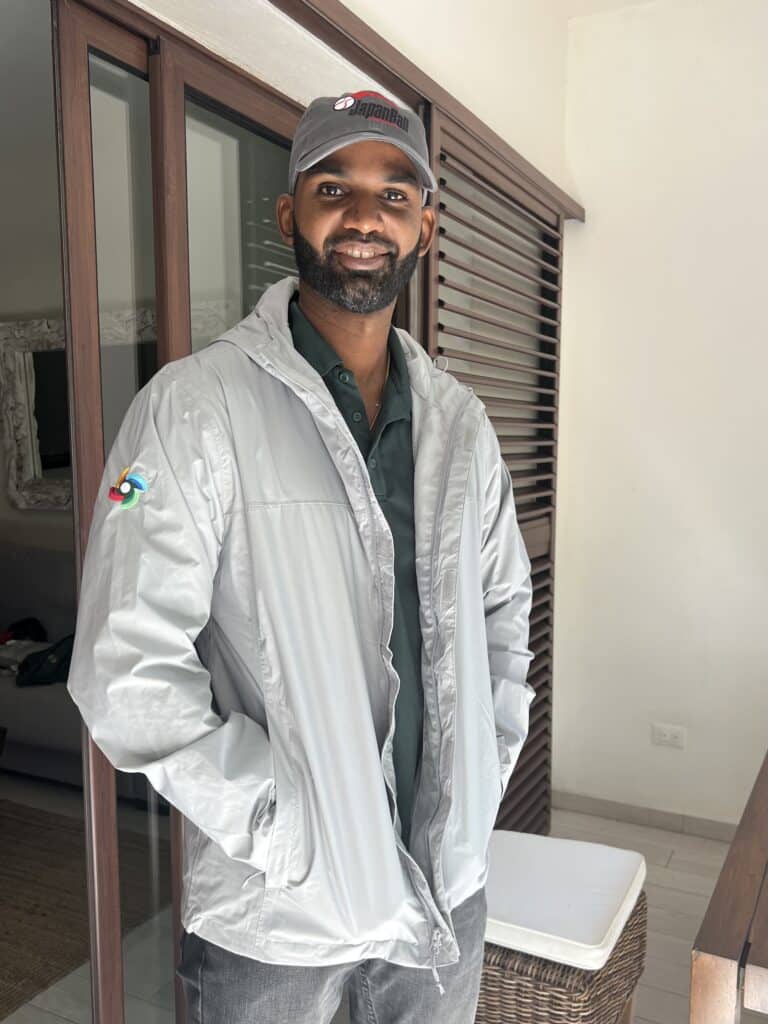
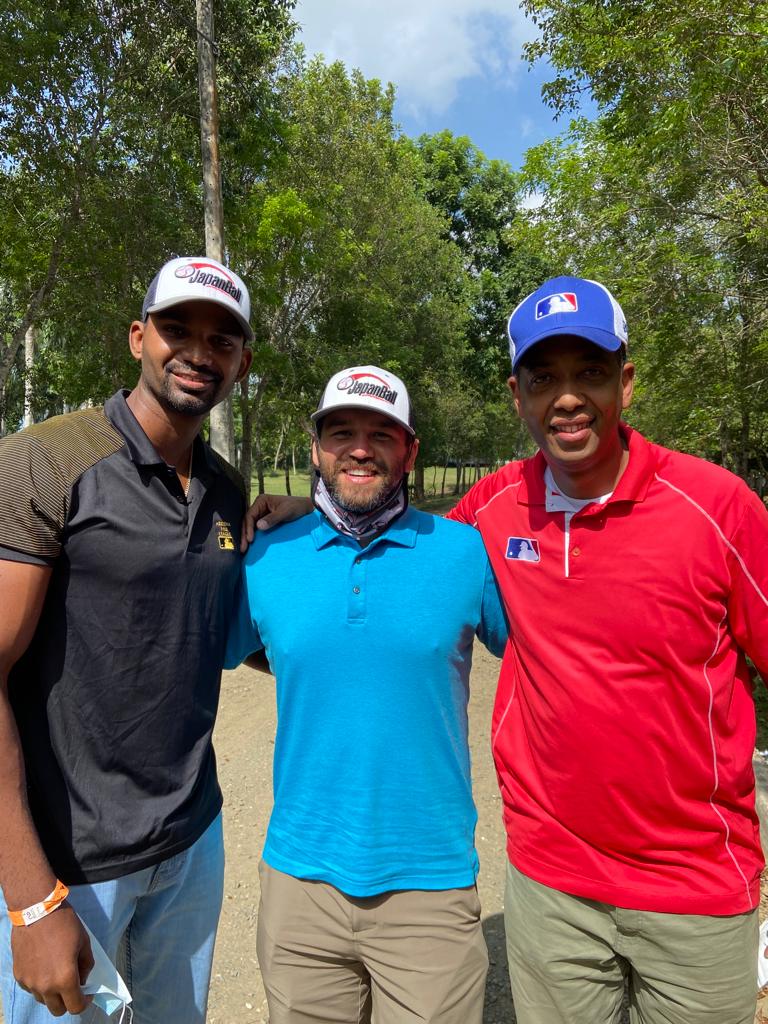
Castillo left MLB after a couple of years, worked a while for an agency that represented ballplayers, and then focused on non-baseball activities. Several years ago, he took on more management responsibility for the family business after the death of his mother. And he runs a grout business, too, while also working for an importer of automobile parts.
“My wife started the grout business – in my dad’s back yard, actually,” he said with a laugh. “She started with a partner, but the partner dropped out and I stepped in to help. It’s been doing great, especially in the last year. We’re getting new clients, and I think things will continue to get bigger.”
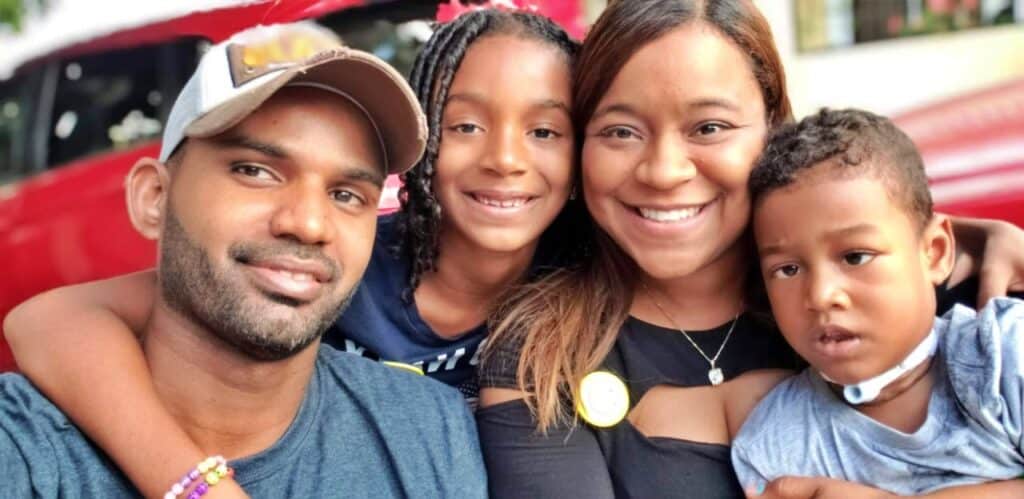
He and his wife, Laly, met in college, married in 2012, and have two children. Their daughter, Sara, is 9, and son Issac is 6. Isaac requires much assistance because of medical issues he’s had since birth. At birth, he had respiratory problems, and doctors eventually said he would need a kidney transplant.
“He was blue in the face when he was born and stayed in the hospital for 15 days,” Castillo said. “After two or three months, it was getting worse, and doctors told us he had some kidney conditions that meant he would require a transplant. That was a tough moment in our lives because that type of surgery isn’t available in the Dominican Republic, and doctors said at the time that he wouldn’t last more than a year.”
The Castillos then got a second opinion, and the doctor determined that Isaac did not need a transplant. But the relief was short-lived. When Isaac was nine months old, he contracted pneumonia, leading to serious complications that left him needing constant care.
“He was in the ICU for two months,” Castillo said. “It was very, very tough. He had two strokes and had to have a tracheotomy. There were 11 kids in the ICU at the time, and he was the only one who survived, but he had some brain issues. He has a palsy condition and doesn’t speak, walk, sit down, or hold up his head.”
Isaac has shown improvement after attending a special school and undergoing therapy on a regular basis, and Castillo is hopeful that he can continue to make progress.
But the constant care requires time and money. Laly had to leave the workforce to take care of him.
“My wife has had to give up so much,” Castillo said. “She had a very active life before. She used to have a management position with a heating and air-conditioning company, and then she started the grout business.”
Pachy is considering going back to university and training in some area of technology. As it is, he currently balances the grout business, the property management responsibilities, work with the auto parts importer, and JapanBall, the latter of which began in 2019 and got him back in touch with baseball.
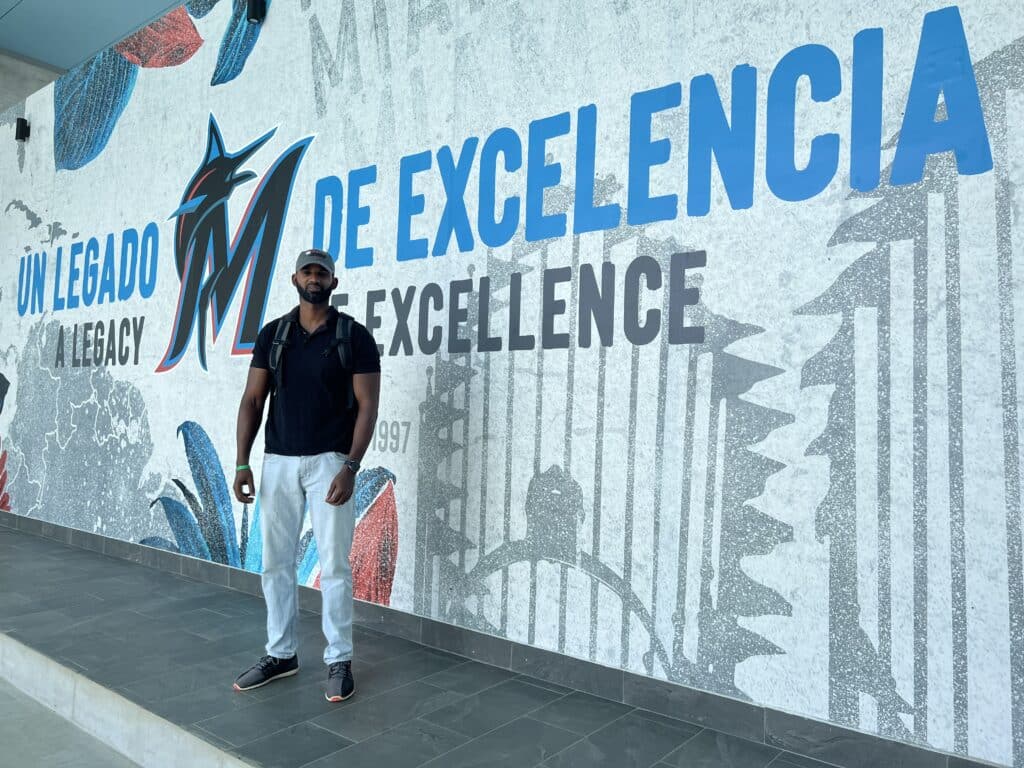
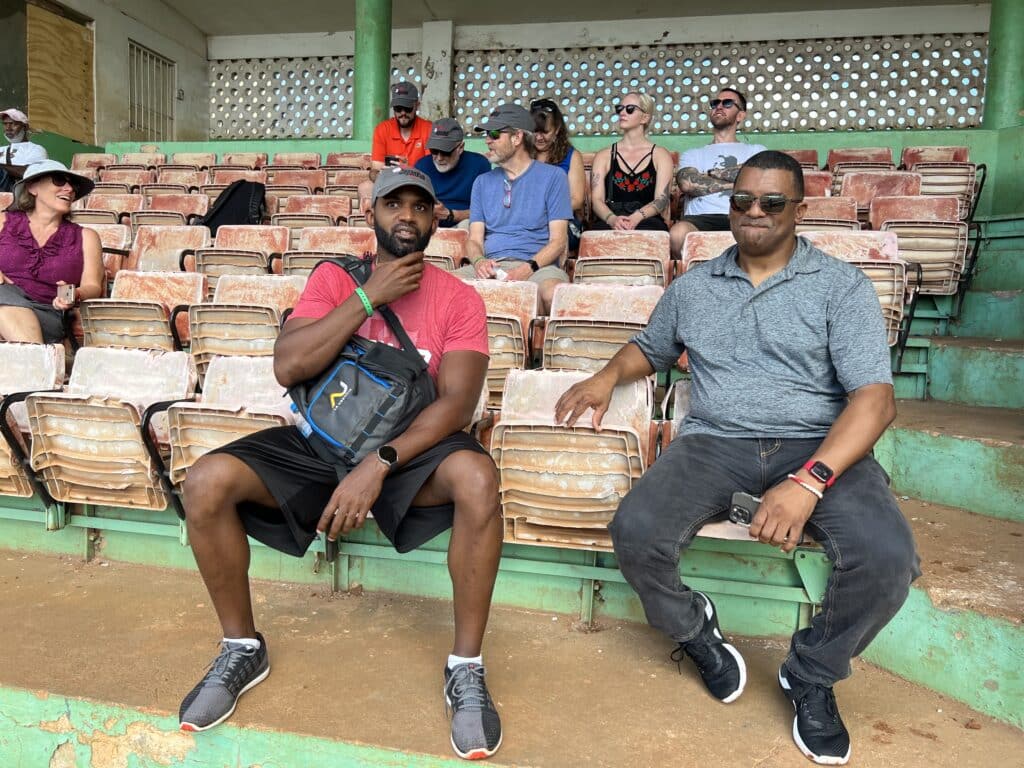
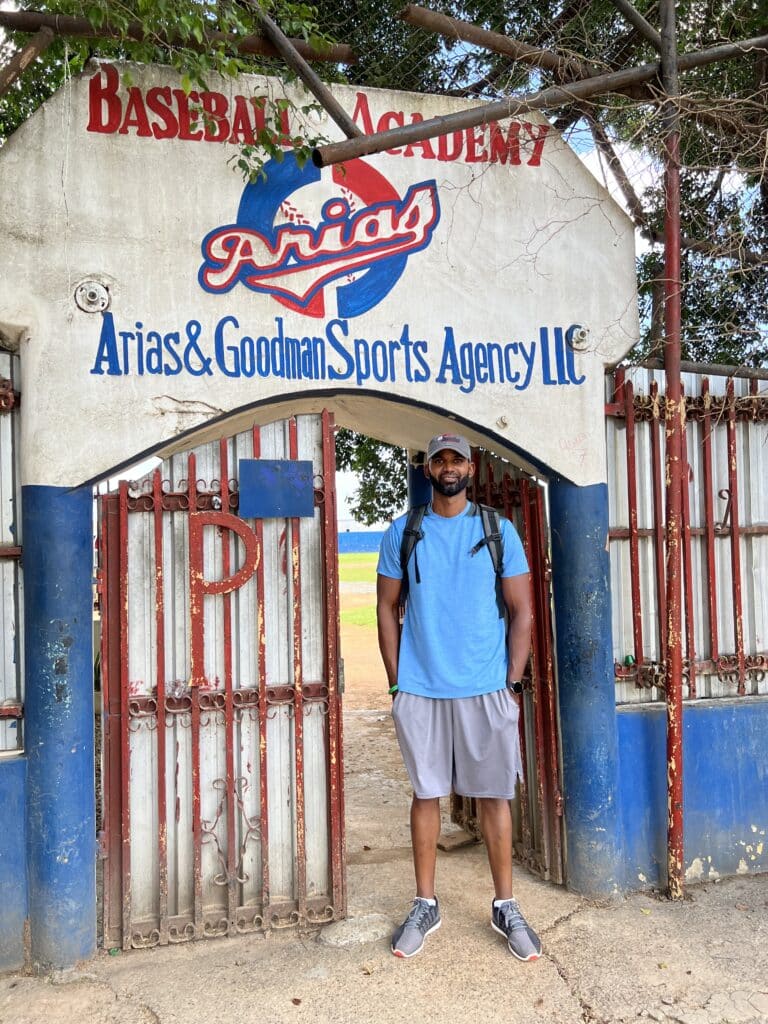
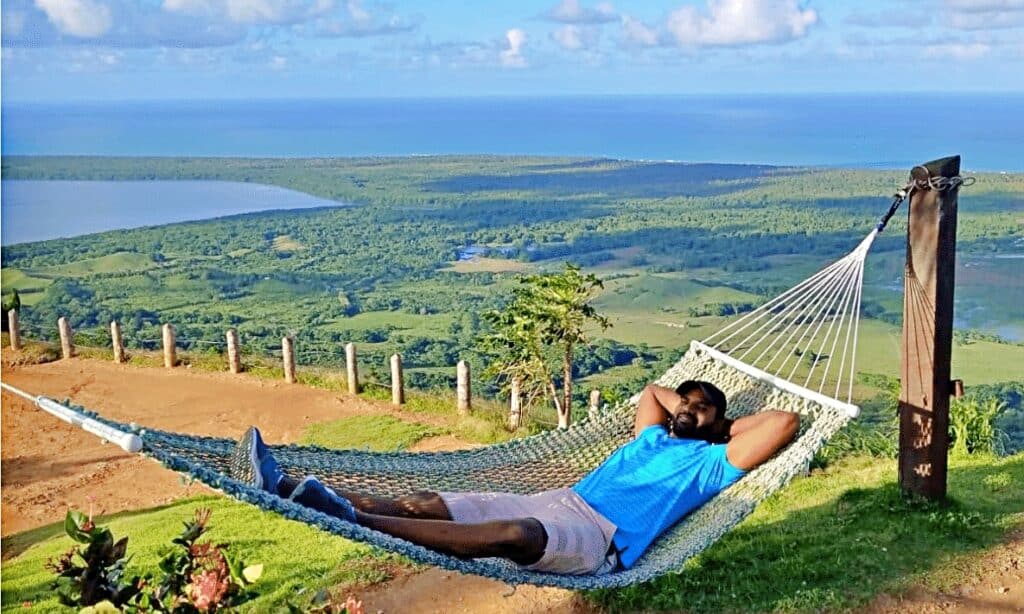
His job description with Japan Ball – do pretty much whatever needs to be done.
“He’s a real go-to, on-the-ground person,” Barclay said. “Anything that comes up there, he’s our guy. It’s vital to have people on the ground that you trust, and I trust him 100 percent to handle any issues.”
Castillo says, “I do a lot of things throughout the year, not just when people are here on tour. I do stuff like checking out hotels. Sometimes I can get better rates because I’m from here, can talk to the hotel people directly, and understand the way we negotiate, which is very different from the way it’s done in the U.S. I also arrange transportation and try to get better rates.
“And, of course, I’m here for the guests when they’re here – taking care of them, guiding some, and making sure that things go smoothly.”
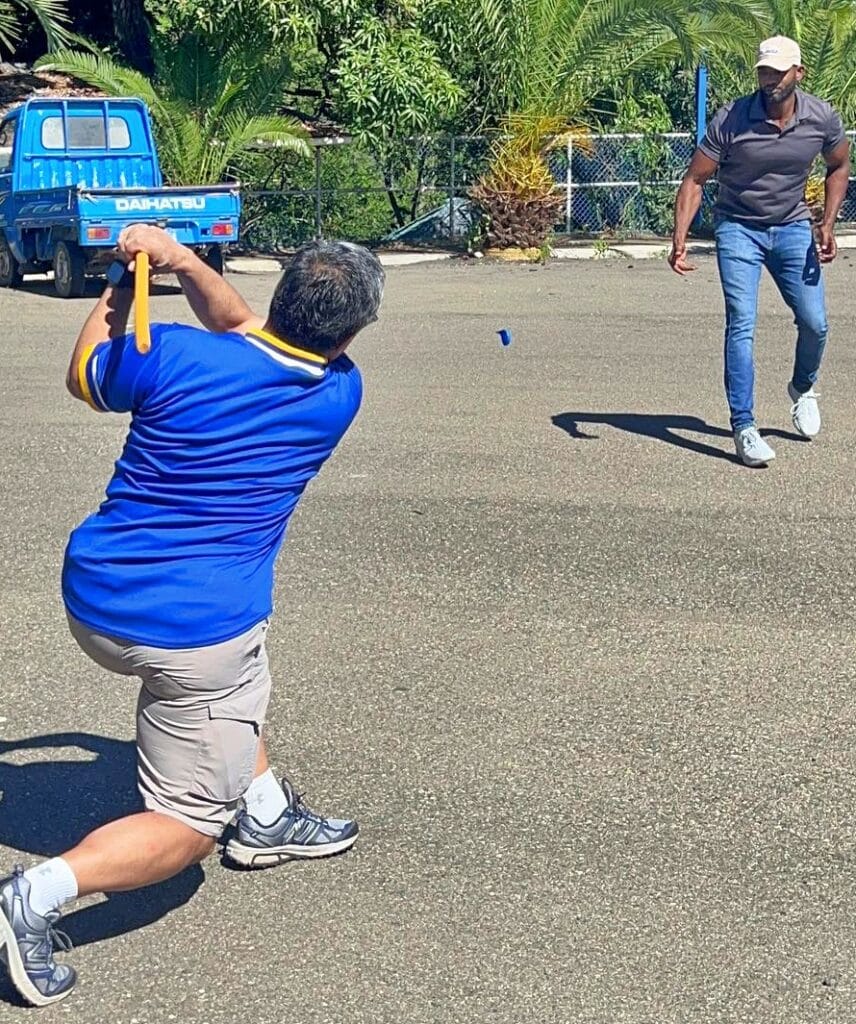
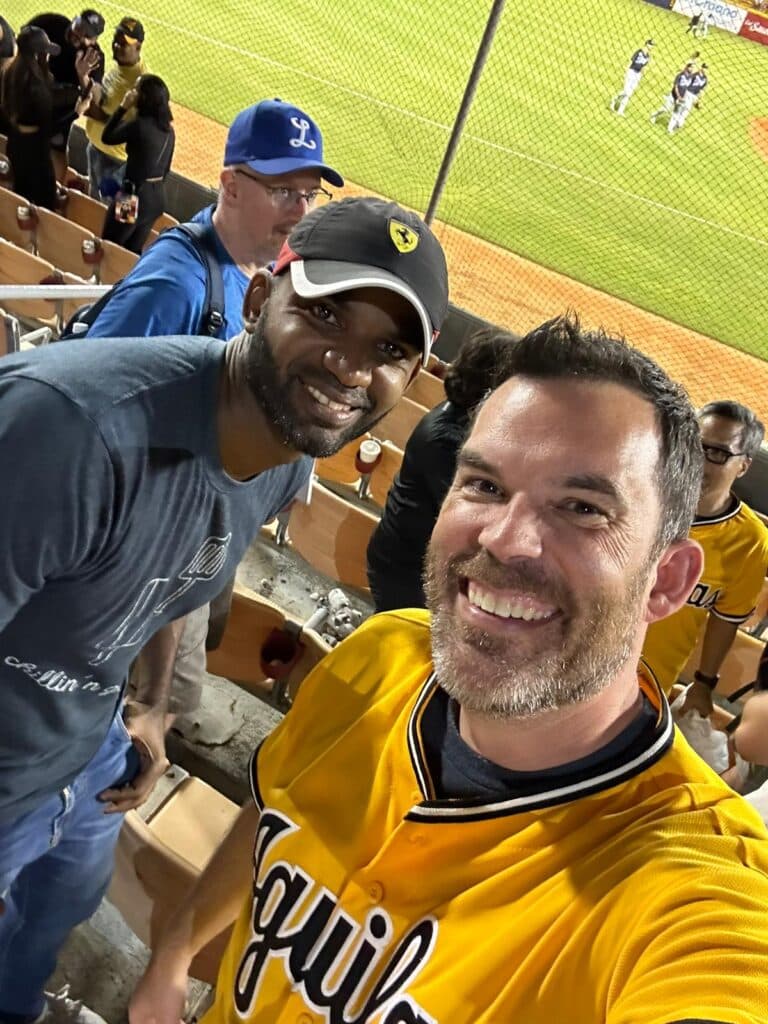
JapanBall members have more than a few stories of Pachy stepping up to help.
During the Covid-19 pandemic, he helped ensure that guests got tested prior to returning to the United States. Another time, a member of the group was bitten by a feral cat who was begging for food at a restaurant, and Pachy had to arrange for the guest to be examined and get a rabies vaccination.
Pam and Steve Ikeda live in the Los Angeles area and have been to the Dominican Republic twice with JapanBall. Pam says, “By nature, he always looks out for us, whether it was crossing the streets, going up ramps, or whatever. He was very protective of us. I remember our first trip there, which was during Covid, and some of the ushers at a game were getting on us because we and some of the local fans weren’t wearing our masks. He went over there and defended us very firmly. He said we weren’t doing anything differently than the locals.”
Steve recalled another incident when Pachy made a difference.
“We were at a game, and a foul ball landed right underneath my seat,” Steve said. “As I reached down for it, one of the stadium employees reached over and grabbed the ball from me. Pachy scolded the guy and said he should let the fan have the ball. He did, and other fans applauded.”
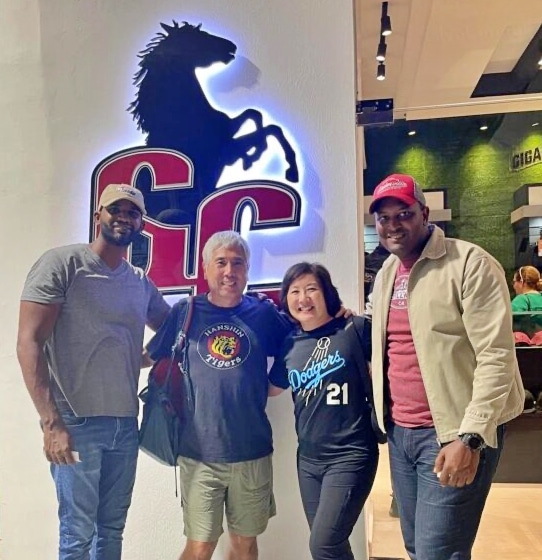
That would be no surprise to Gonzalez, who says Castillo is “quiet, but very direct. He has a confidence that shows through to everyone. If something is wrong, he’ll let you know immediately. He’ll tell you what he’s thinking.”
Pam Ikeda added, “It struck me how much he loves his family. He is so proud of his family. He is definitely a family man, and that all carries over into how he treats JapanBall guests.”
Ken Sins, who is from the Seattle area and another veteran of JapanBall trips to the D.R., had a similar experience.
“Pachy and the others took great care of us,” Sins said. “I remember a few times having to go to the restroom at a game, and he would be there waiting when I left. I was impressed by that. And whenever we were at a restaurant, he would make sure to point out the local specialties and tell us to try those instead of something basic, like a hamburger.
“And there was the time we visited a youth baseball organization and donated a bunch of equipment. The kids there really gravitated toward him. You could tell that he liked them and that they felt the same about him.”
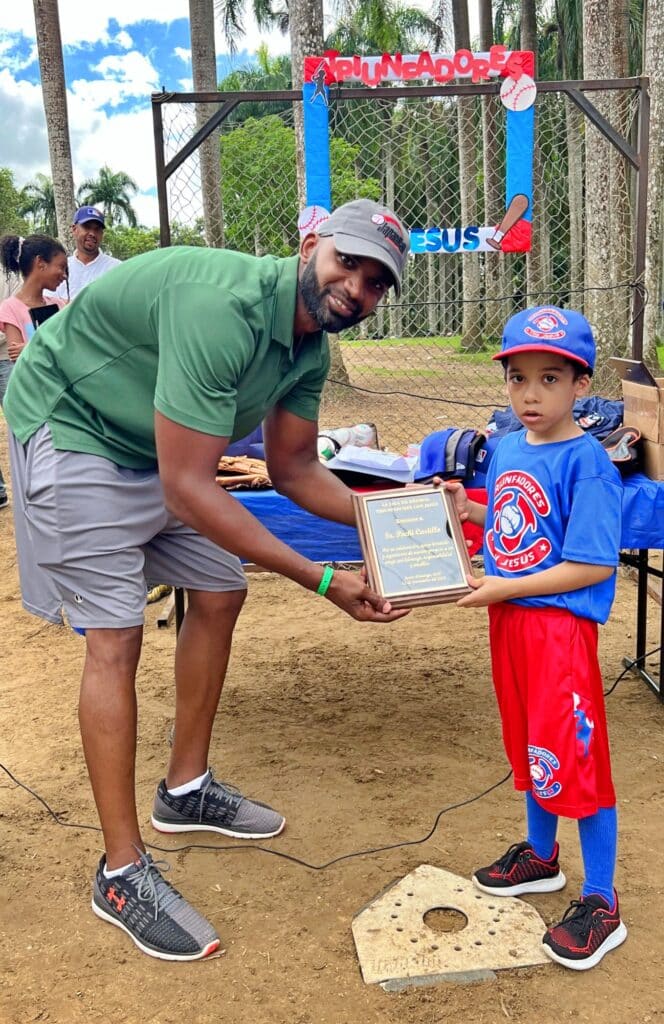
Castillo’s role with JapanBall could expand if the company is able to schedule additional trips to the D.R.
“We’re looking to get more tourists down there, whether in the form of fans or teams,” Barclay said. “If we can accomplish that, it would give Pachy more responsibility for planning things, in addition to the execution.”
Which would be great from his standpoint.
“I really like this job,” he said. “I like meeting new people and making sure they have a good time while they’re here.”